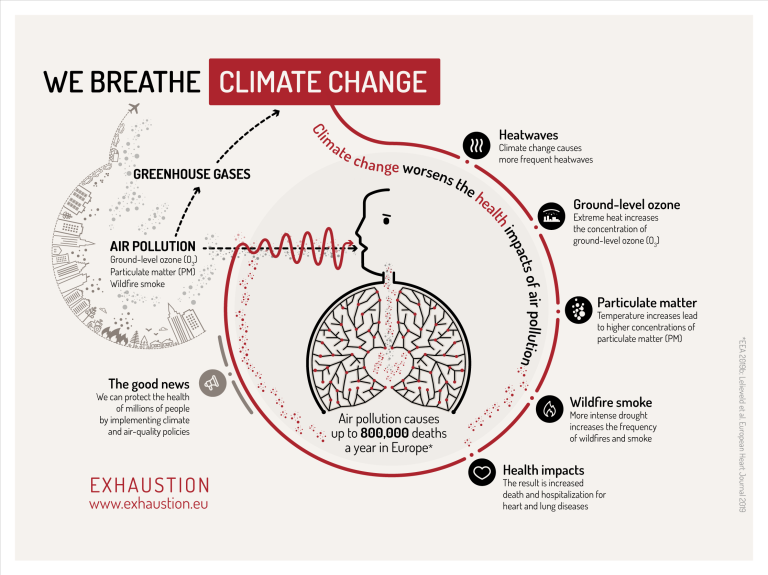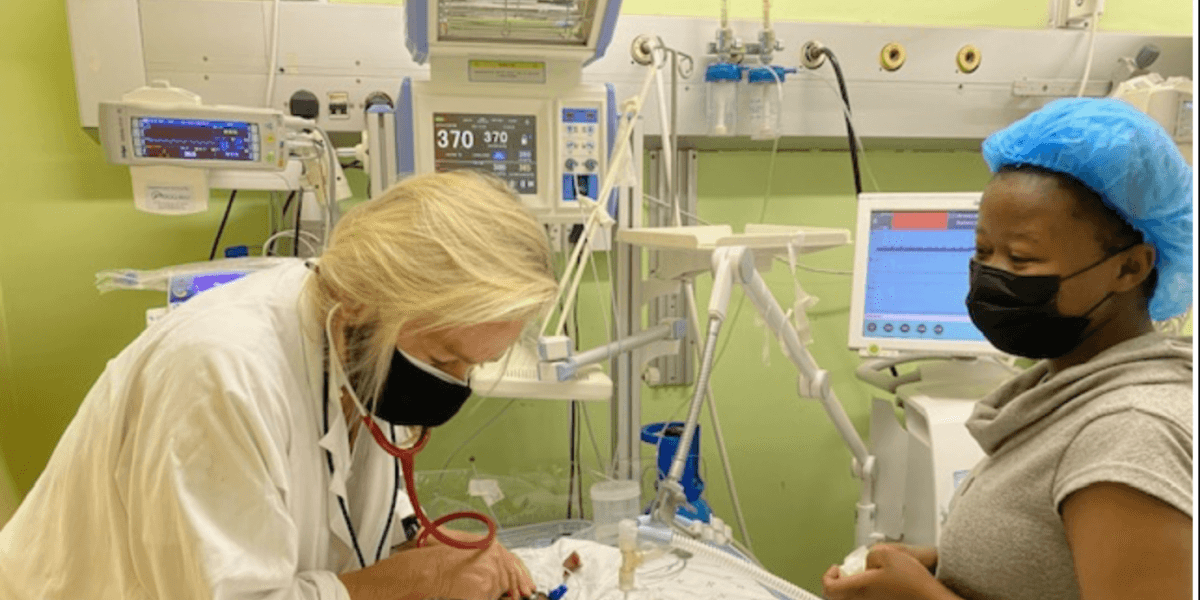PEDIATRICIAN BRITT NAKSTAD (LEFT) SEES HOW THE HEAT AFFECTS MOTHERS AND NEWBORNS AT THE PRINCESS MARINA HOSPITAL IN GABORONE BOTSWANA WHERE SHE WORKS. PHOTO: PRIVATE.
Heatwaves hit the most vulnerable hardest
Climate change is increasingly impacting people's health all over the world. As heatwaves become hotter and more frequent, the most vulnerable suffer the most.
'Here in Botswana, like other places in Africa, mothers are used to the heat, and they probably don't know how extreme heat can have serious consequences for newborn,' says professor and paediatrician Britt Nakstad, who works in the neonatal unit at the Princess Marina Hospital in Gaborone, Botswana in addition to being a professor in paediatric medicine in Botswana and a researcher on the health impacts of extreme heat on mothers and babies in sub-Saharan Africa..
Right now, around Christmas, is when the weather in Botswana is at its hottest. Some days the outside temperature can reach as high as 40 degrees. On days like that, the temperature inside the hospital can easily reach 35 degrees, and air conditioning systems or fans are rarely available to cool the air. 'We often have to prioritise using electricity to power the respirators rather than the ceiling fans. I guess the hospital doesn't have enough electricity to power both,' says Nakstad.
'Pregnant and nursing women and newborns, especially in low-income and middle-income countries, are particularly vulnerable to the impacts of climate changes such as heatwaves and other types of extreme weather. The health problems these cause can be detrimental to health and development for coming generations, too,' she says.
We often have to prioritize using electricity to power the respirators rather than the ceiling fans. I guess the hospital doesn't have enough electricity to power both.
Extreme weather is a central health risk resulting from climate change. According to the UN's Intergovernmental Panel on Climate Change (IPCC), for every half degree of global warming, there will be a noticeable increase in the frequency of heatwaves, torrential rain and droughts.
Droughts in themselves affect the health of vulnerable groups in sub-Saharan countries. Not only is it more difficult for pregnant and nursing women to find enough food and clean water, especially in the poorest areas; they also have to walk long distances in the heat to fetch water, carrying their newborn babies on their backs.
Extreme heat is a health risk
'Global warning means that heatwaves become more frequent and prolonged, and critical limits for what we humans can tolerate will be exceeded more often,' says professor Jana Sillmann in CICERO, and one of the climate researchers who contributed to the panel's latest report on climate change.
She says that children, elderly people and people with chronic illnesses are the one most affected: 'There is a direct link between the global average temperature and the incidence of extreme heat events. But the level of awareness among people that heat can actually be fatal is low,' says Sillmann.
Some places on the planet heat faster than others, and the tropic regions near the equator will be hit hardest. According to research led by CICERO, in the event of global warming of 2 degrees, West Africa, South America and India can expect more than three months in the year when the levels of dangerous heat will be exceeded. Sillmann believes urgent action is needed to mitigate the serious impacts on people's health, particularly in these areas. She says there is a need for awareness and adaptation measures if we are to save lives.
'Heat-related deaths and illnesses can be reduced, but we must understand that heat constitutes a health risk for vulnerable groups. At the same time we must build cities that can handle heat and have effective warning systems in place when heatwaves come,' says Sillmann.
Unaware that extreme heat can have serious consequences
'Many deaths could have been avoided with relatively cheap and simple measures and more and better information,' says Nakstad.
The information can be as simple as explaining the importance of breast milk, what affects the amount of breast milk a woman produces, why people should drink enough liquids and stay in the shade, and how to identify signs of dehydration in newborns.
Health personnel examine a newborn at Princess Marina Hospital in Botswana. Photo: Private
Nakstad's experience is that when their children do fall ill, the mothers of very sick children attribute the illness to an ongoing heatwave. 'These children were healthy at birth, but fell sick a few days later during a heatwave. Signs of overheating and excessive loss of fluids were not detected quickly enough. It's important to explain the danger signs to healthcare workers and mothers,' says Nakstad.
'We are already seeing that when babies are born very prematurely, it is often associated with high ambient temperature. It also looks as if pregnant women who are exposed to extreme heat during pregnancy may run a higher risk of giving birth to children with congenital deformities.'
Health benefits from reducing greenhouse gas emissions
'There are significant health benefits to be gained from reducing greenhouse gas emissions,' says research director Kristin Aunan in CICERO.
Aunan leads a number of projects in climate and health (including EXHAUSTION), and the ENBEL network, which brings together researchers in the fields of climate change and health. She points out that climate changes affect our health both directly through illness and death caused by extreme weather events such as flood, heat, drought and forest fires, and indirectly through, for example, increases in vector-borne diseases such as dengue fever and malaria, air pollution, malnutrition, and food-borne and water-borne diseases.
Despite the growing awareness of how climate changes can affect our health, there is still a pressing need for more knowledge about what types of adaptation measures work best and for better cooperation between climate change and health research communities.

'Broader cooperation between research communities in climate change and health can provide decision makers with more integrated knowledge. This can help strengthen adaptation to changes that come and raise awareness about the health benefits to be gained from reducing greenhouse gas emissions,' says Aunan, adding that this is a challenge we're already facing today, not something that lies in the future: 'Climate changes are already affecting public health most places in the world, and the health impacts will intensify in step with global warming.’
Jana Sillmann agrees: 'Every little increase in global temperature will lead to more extreme heatwaves, and we will see this more frequently all over the world. We must reduce greenhouse gas emissions drastically and as soon as possible if we are to avoid the world health impacts of climate change.'
Related projects
EXHAUSTION
Increasing temperatures and heat waves due to climate change, combined with air pollution, constitute major health risks, and could cause an increase in cardiovascular and respiratory diseases across Europe. EXHAUSTION (Exposure to heat and air pollution in Europe – cardiopulmonary impacts and benefits of mitigation and adaptation) aims to quantify the changes in cardiopulmonary mortality and morbidity due to extreme heat and air pollution (including from wildfires) under selected climate scenarios.
EXHAUSTION has its own project website at EXHAUSTION.EU
Health | Air pollution | Heat waves
